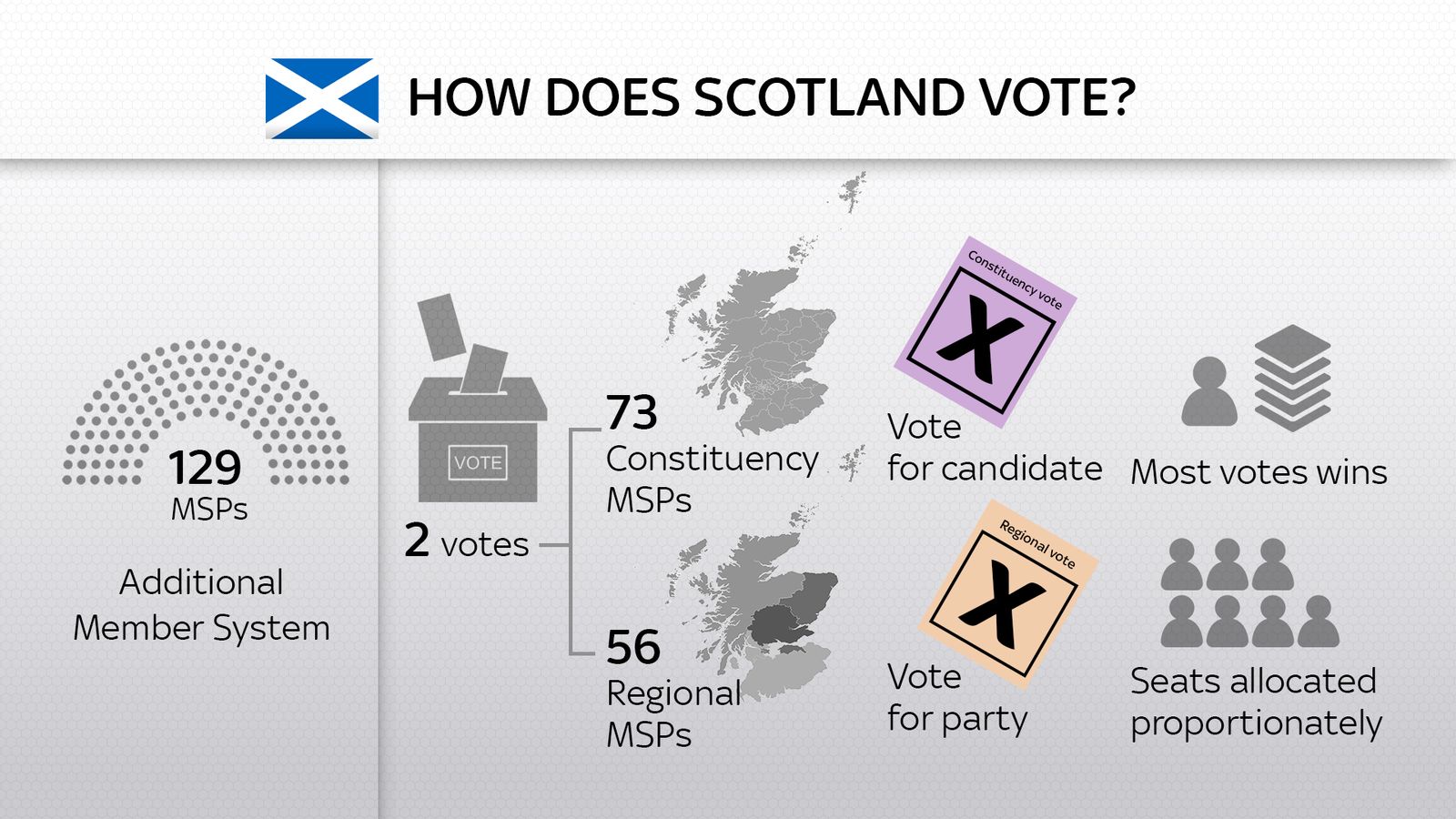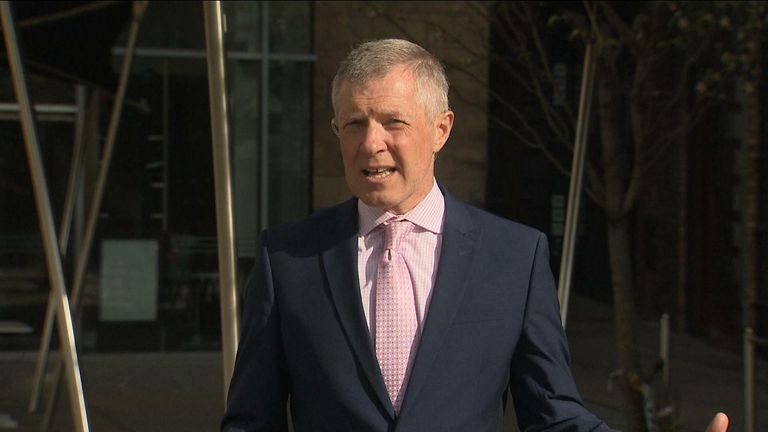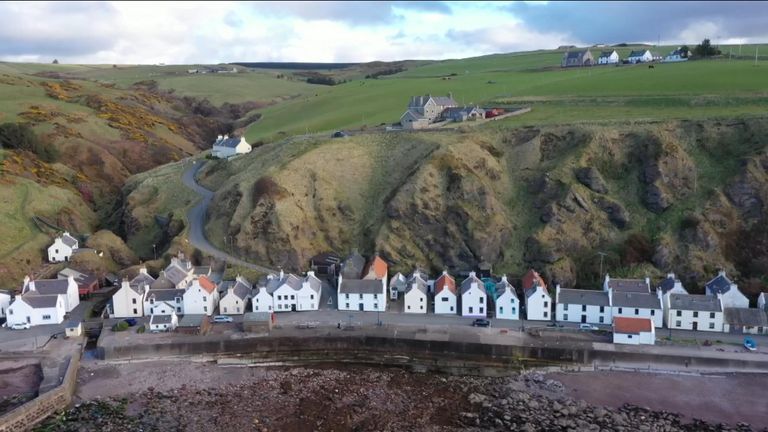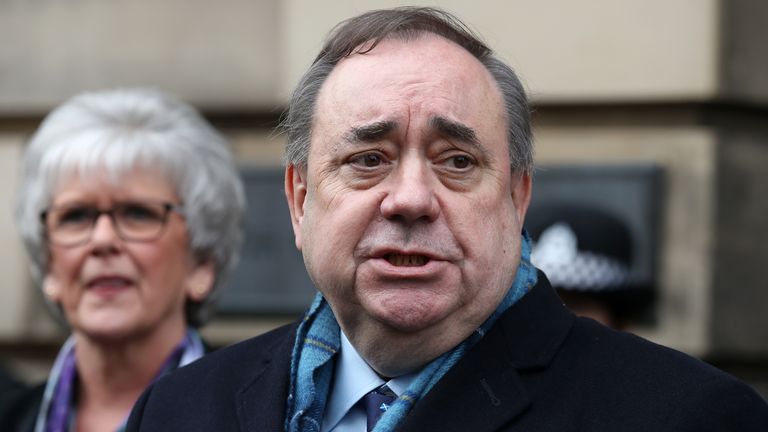This week Scotland goes to the polls in an election that could have profound consequences for the whole of the United Kingdom.
The Holyrood result will decide not just who runs Scotland, but whether the battle for another Scottish independence referendum will return to the forefront of our national politics once more.
It is a prospect that fills the prime minister and Unionists with dread, while for Scottish Nationalists these elections are a huge opportunity to claim a “democratic mandate” to hold a second referendum in Scotland by the end of 2024.
And while an outright majority for Nicola Sturgeon is on a knife edge, it is almost certain that there will be a pro-independence majority in Holyrood by next week, which means the battle for a second referendum is really on.
For Boris Johnson and his Number 10, the prospect of an outright SNP victory is nothing short of a nightmare. It puts the future of the 300-year Union into play. It is a fight that the prime minister can neither ignore nor afford to lose. Is there a worse legacy than being the British prime minister who lost the Union?
But to risk a referendum with Mr Johnson at the helm also doesn’t bear thinking about, admit his allies. There is a reason why the prime minister hasn’t campaigned in Scotland ahead of these elections.
Beyond England’s red wall, he is a liability not an asset, a prime minister that bolsters the Separatists’ cause. “We can’t have a referendum when Boris Johnson is prime minister,” is how one Conservative politician put it to me.
Unionists are praying Ms Sturgeon fails to regain the parliamentary majority the SNP lost in 2016, because they think it would give the prime minister political cover to rebuff her demands. Cue Douglas Ross: “We can stop that problem and that issue [of a second referendum] if we stop an SNP majority,” the Scottish Conservative leader told me in an interview in Glasgow last month.
But even if the SNP don’t win outright, pro-independence parties – the SNP and the Greens – are expected to win a majority in Holyrood, which will pave the way for a battle between the Scottish and UK governments.
On the principle of a second referendum, Ms Sturgeon’s opponents argue that it’s the SNP, not the country, that really wants another referendum. Polling over the past year has shown the majority of Scots back independence, but recent polling has shown that support dropping with the Yes and No camps pretty evenly split.
Last week, the Scotsman released a poll which put support for Yes at just 42%, the lowest figure in favour of separation since 2019.
Her opponents argue too that there are no grounds for another referendum within a decade of the last. Both the Unionists and Separatists agreed the matter would be “settled for a generation”.
It was a “personal promise” made by Ms Sturgeon and her predecessor Alex Salmond and one that Mr Johnson quotes back to the first minister when she raises the matter now. Scotland voted 55% to 45% to remain part of the UK and Mr Johnson has no intention of reopening that debate.
But that referendum, rather than settling the issue, baked the constitutional question at the heart of Scottish politics. To quote from Fraser McMillan and Jac Larner’s fascinating long essay on Scotland’s voter tribes: “Somehow, the referendum’s losing side had contrived to win, as the plebiscite legitimised the option of independence and mobilised unprecedented numbers of people behind a previously niche cause.
“With the end of the 300-year-old Union suddenly a mainstream concern and tangible possibility, the Scottish electorate hastily rearranged itself around the issue.”
Since that referendum, the Yes vote has coalesced around the SNP, turning the party into the dominant electoral force in Scottish politics, in Westminster and Holyrood. Scottish Labour has been the big loser – bringing with it an existential crisis for a party that has never won the keys to Number 10 without winning a majority in Scotland (the party now has just one MP out of 59), while the pro-Unionist Scottish Conservatives have become the official opposition in Holyrood.
Of course, in the Scottish Parliament elections, voters may well want Ms Sturgeon to be the first minister while not much wanting a second referendum. But when I challenged the first minister on whether she really does have a mandate on this single issue when she is campaigning to be re-elected to lead Scotland on a far bigger platform, she argued that the Scots are clear what they are voting for when they vote SNP – and if they don’t want independence but do want her as leader, they can vote No in a referendum.
“I think the polling evidence suggests now a majority of Scots want independence but yes, there’s a significant number who don’t,” she told me. “And it comes back to a point of democracy, how do you settle that? You can’t settle that by me saying ‘well we’ve got to be independent’ and Boris Johnson saying ‘no you absolutely can’t be’. You settle it by letting people decide on a constitutional issue that has to be through a democratic legal referendum.”
The UK government’s strategy to date has to been to point blank refuse to countenance another vote and rejected the argument that Brexit, which saw the UK taken out of the EU against the wishes of 62% of Scots who backed remain, has legitimately turbocharged the matter of independence once more. The Scottish Conservatives have doubled down on this describing Ms Sturgeon’s plan to hold a referendum without consent from Westminster as an “illegal” or wildcat poll.
But the reality is somewhat different. “We can’t just ignore it, we have got to try to shut it down,” says one Conservative source. “It’s going to dominate our politics, and I’m viewing it with dread. We have to defeat them.”
The “Road to a Referendum” map published in January by the SNP Scottish government sets out the route to a referendum without the consent of Westminster. Holyrood will pass the legislation and then ask the UK government to with agree to it or take legal action to despite the legal basis of the referendum.
Ms Sturgeon knows it is not good enough for Mr Johnson just to declare an independence referendum illegal – he’ll have to settle that through the Supreme Court.
That’s because under the devolution settlement, if legislation is passed in Holyrood goes beyond the scope of the devolved administrations power, the UK government has four weeks to decide whether to challenge it in the Supreme Court, which makes it almost inevitable that the UK government will have to go to court to strike down the legislation. It’s not enough to just declare the vote illegal.
“Boris Johnson is not somebody that is immune to democracy,” says Ms Sturgeon. “This argument that people in Scotland can vote for that, that they can demand a referendum, they can vote for the SNP over and over again, but somehow a Westminster prime minister can simply stand in its way, it’s not going to be sustainable, but it also, in the process, perhaps makes the biggest argument for independence there is.”
But the SNP know too that they are pushing for independence in a country very divided on not just the matter of independence but on the timing of a vote. Ms Sturgeon’s job, should she win the Holyrood elections, is to use the next two years to build the case and to build momentum once more for an independence referendum she has pledged to hold before the end of 2024.
And by framing Mr Johnson and the court in Westminster as the overloads frustrating the will of the Scottish people is the surest way to build momentum for her cause and campaign.
In Westminster, as well as preparing the ground for a legal battle of the legitimacy of a referendum called without the consent of the UK government, politicians and officials are also drawing up a plan to try to give the Scots tangible reasons to remain part of the Union, with The Sunday Telegraph reporting a cross-governmental response plan, taking in new infrastructure investment, NHS England support for Scottish patients and a programme to pay for students to study in different parts of the UK.
A “show not tell” strategy then to try to gradually deflate the momentum for independence, while preparing for battle to block the Scottish government via the courts, Mr Johnson is taking an iron fist in a velvet glove to this fight.
But if you thought the question was settled in 2014, the unstoppable rise of the Scottish National Party in Scottish politics has changed all of that. Success at the ballot box means the SNP cannot just be ignored. This then an election as important to Westminster as it is to Holyrood, with the future of the Union set to dominate – and unsettle – our politics for years to come.




